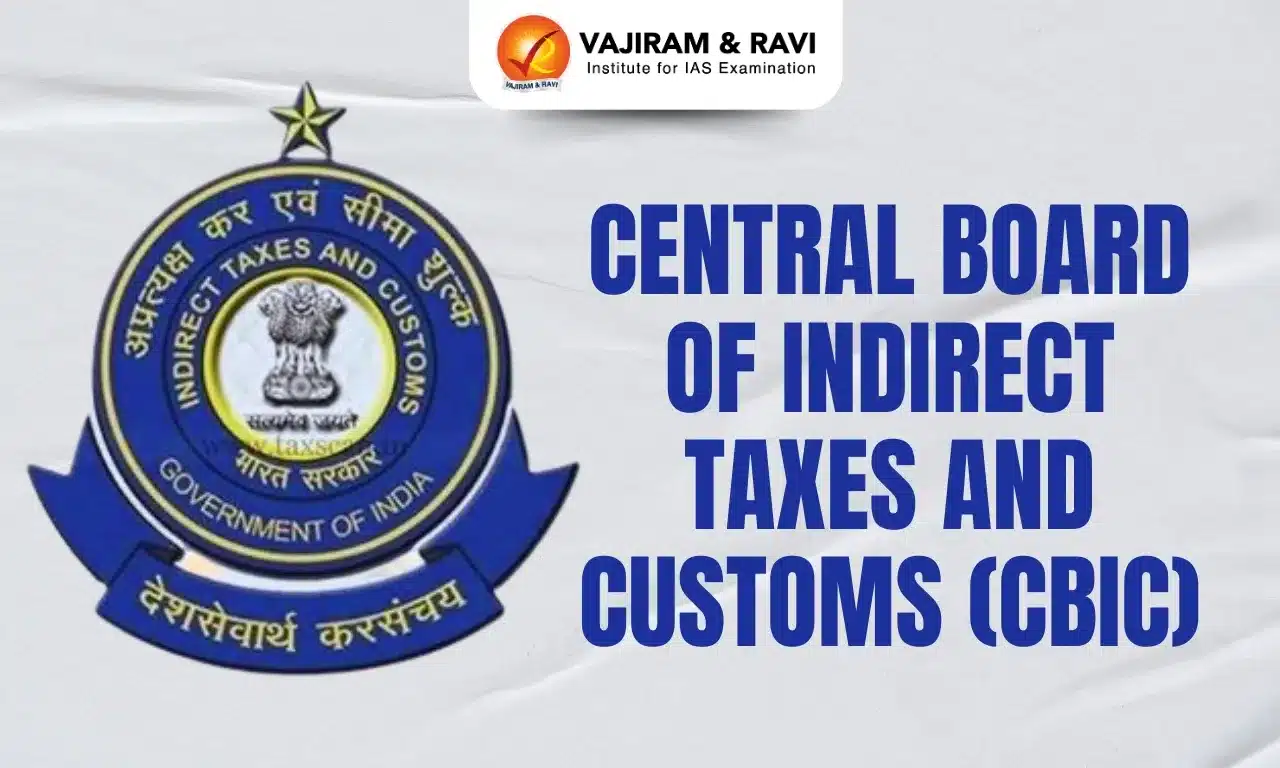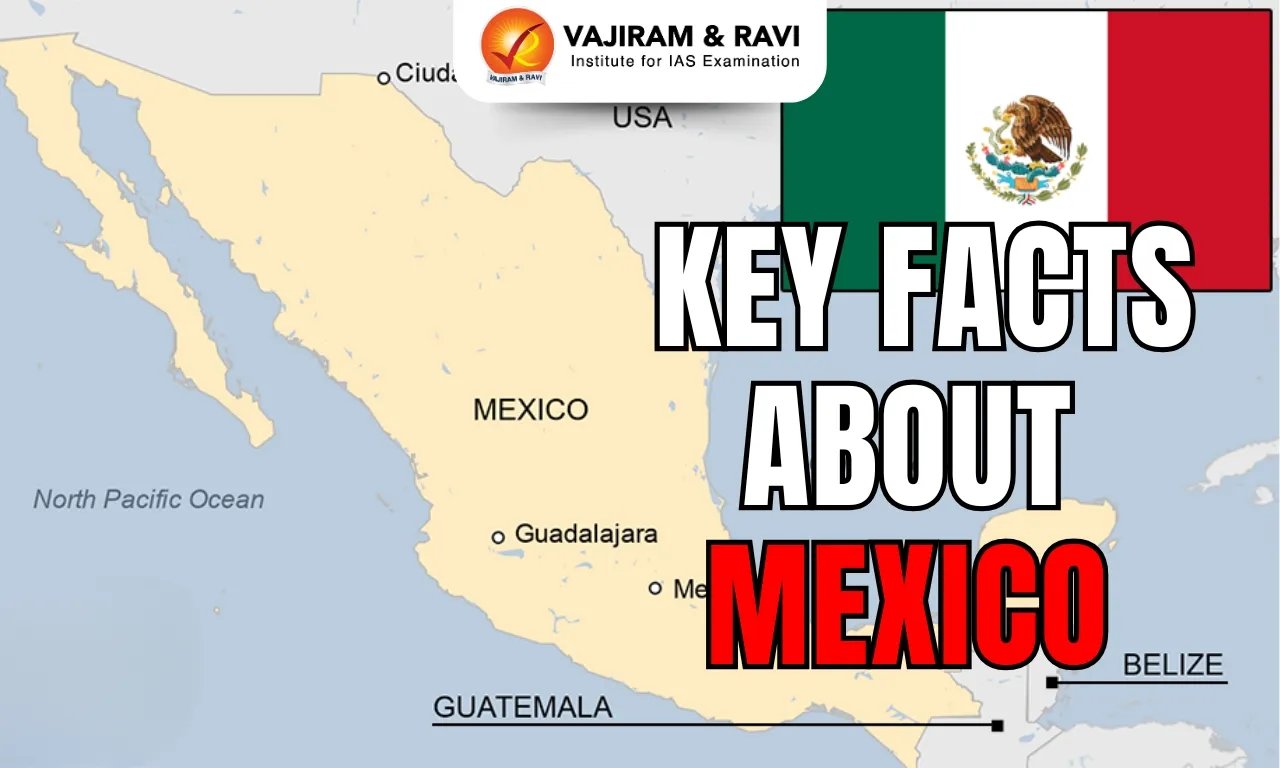Central Board of Indirect Taxes and Customs (CBIC) Latest News
The Central Board of Indirect Taxes and Customs (CBIC) ‘GST & Customs Pavilion’ has bagged the Gold Prize in the ‘Public Outreach and Communication’ category at the India International Trade Fair (IITF) 2025 in New Delhi recently.
About Central Board of Indirect Taxes and Customs
- CBIC, formerly known as the Central Board of Excise and Customs (CBEC), is one of the Boards constituted under the statute the Central Boards of Revenue Act, 1963.
- It is the apex body under the Department of Revenue, Ministry of Finance, responsible for administering indirect taxes in India.
- It deals with the tasks of
- Formulation of policy concerning levy and collection of Customs, Central Excise duties, Central Goods & Services Tax and IGST.
- Prevention of smuggling and administration of matters relating to Customs, Central Excise, Central Goods & Services Tax, IGST, and Narcotics to the extent under CBIC’s purview.
- The Board is the administrative authority for its subordinate organizations, including Custom Houses, Central Excise and Central GST Commissionerates, and the Central Revenues Control Laboratory.
- The CBIC is headed by a Chairman and has 6 members in addition to the Chairman.
Source: PIB
Last updated on December, 2025
→ Check out the latest UPSC Syllabus 2026 here.
→ Join Vajiram & Ravi’s Interview Guidance Programme for expert help to crack your final UPSC stage.
→ UPSC Mains Result 2025 is now out.
→ UPSC Notification 2026 is scheduled to be released on January 14, 2026.
→ UPSC Calendar 2026 is released on 15th May, 2025.
→ The UPSC Vacancy 2025 were released 1129, out of which 979 were for UPSC CSE and remaining 150 are for UPSC IFoS.
→ UPSC Prelims 2026 will be conducted on 24th May, 2026 & UPSC Mains 2026 will be conducted on 21st August 2026.
→ The UPSC Selection Process is of 3 stages-Prelims, Mains and Interview.
→ UPSC Result 2024 is released with latest UPSC Marksheet 2024. Check Now!
→ UPSC Prelims Result 2025 is out now for the CSE held on 25 May 2025.
→ UPSC Toppers List 2024 is released now. Shakti Dubey is UPSC AIR 1 2024 Topper.
→ UPSC Prelims Question Paper 2025 and Unofficial Prelims Answer Key 2025 are available now.
→ UPSC Mains Question Paper 2025 is out for Essay, GS 1, 2, 3 & GS 4.
→ UPSC Mains Indian Language Question Paper 2025 is now out.
→ UPSC Mains Optional Question Paper 2025 is now out.
→ Also check Best IAS Coaching in Delhi
Central Board of Indirect Taxes and Customs (CBIC) FAQs
Q1. Central Board of Indirect Taxes and Customs (CBIC) is constituted under which act?+
Q2. Central Board of Indirect Taxes and Customs (CBIC) functions under which ministry?+
Q3. What subordinate organisations fall under the administrative control of Central Board of Indirect Taxes and Customs (CBIC)?+
Tags: central board of indirect taxes and customs prelims pointers upsc prelims current affairs

















